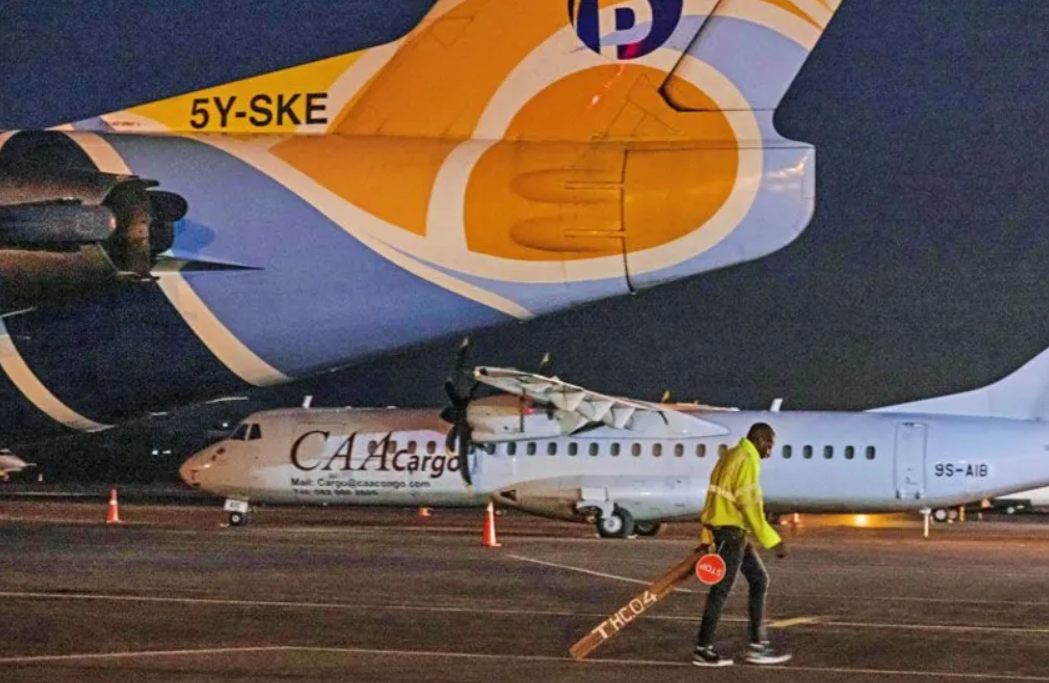Rwanda Warns Rwanda That It Jammed GPS Signals Near the Front Lines
Claiming that the Rwandan army has jammed satellite navigation systems—vital for civilian flights in the country’s conflict-stricken eastern region—the Democratic Republic of the Congo (DRC) has leveled serious accusations against Rwanda. Rwanda is allegedly using techniques including “jamming” and “spoofing,” a cybercrime approach that involves impersonation or the fabrication of bogus identities, to interfere with aircraft Global Positioning System (GPS) signals, according to the DRC government.
A “significant risk” to commercial and humanitarian flights delivering vital relief to victims of the ongoing violence is posed by these acts, according to the DRC. We have not yet received a response to these allegations from Rwanda.
Rwanda is allegedly supporting the M23 rebel group in their assaults against government forces in the DRC with up to 4,000 troops, according to a UN report earlier this month. Rwanda did not dispute the accusation, but it asserted that the government of the DRC lacked the political will to end the problem in the eastern province, which is rich in minerals.
The M23 insurgents have set up a parallel government and captured a lot of eastern area, especially North Kivu province. They identify as Tutsis, the same ethnic group that Rwanda’s president, Paul Kagame, belongs to, and claim to be fighting for their rights.
Despite several peace measures and the deployment of UN and regional troops, the war continues, causing hundreds of thousands of families to be displaced. In a statement released on X, the government of the Democratic Republic of the Congo disclosed that a “technical investigation” had verified that the Rwandan army and M23 rebels were responsible for the GPS jamming, which is a violation of international law.
While the exact effect on air traffic is still unknown, GPS signals over North Kivu, particularly the province capital Goma, have been impacted. Unrest has spread to other eastern adjacent regions as well, including Butembo and Beni.
The government of the Democratic Republic of the Congo has taken action by officially notifying the United Nations’ International Civil Aviation Organization about these acts and requesting that Rwanda be subjected to “appropriate sanctions” as a result.
Conflict Background
The eastern DRC war has its origins in politics and history and is made worse by the abundance of minerals found there. In 2012, the M23 rebel group, so called because it was the name of a peace deal that had been struck between the government of the DRC and an earlier rebel movement on March 23, 2009, began fighting again, this time claiming that the government had broken the pact. Human suffering and extensive unrest have resulted from the group’s comeback in the region.
There has been much debate on the M23’s ties to Rwanda. Rwanda has persistently refuted accusations that the Tutsi-led government provides support to the group. There is evidence that Rwanda was involved, according to the United Nations and other human rights groups, and that Rwanda provided military support to the rebels.
Gold, tin, and coltan are vital to the global electronics industry, but there have long been armed factions in the eastern portion of the DRC, especially in North Kivu, fighting for control of these resources. Over the years, this conflict has uprooted millions of people and killed countless more, putting the local inhabitants through its paces.
The Global Reaction and Its Effect on Humanitarian Relief
Numerous peace conferences and accords have failed to produce sustainable peace despite the continuous calls for a settlement from the international community. The intricate and ever-changing nature of the conflict has restricted the effectiveness of the UN peacekeeping mission, MONUSCO, which has brought some stability.
Due to the conflict’s insecurity and logistical hurdles, humanitarian agencies have faced significant challenges in providing help to the impacted populace. Flights transporting vital supplies to individuals in need may be put at risk by the current accusations of GPS jamming, further complicating these efforts.
To assure the safety of aviation traffic in the region, the DRC government has appealed to the International Civil Aviation Organization, highlighting the gravity of the situation and the necessity for involvement from outside the country. Sanctions being considered for Rwanda highlight the growing animosity between the two nations and their potential impact on regional peace and security.
In summary
A major escalation in an already unstable scenario has occurred with the reports that the Rwandan army has been jamming GPS signals in the conflict-ridden eastern region of the DRC. Civilian and humanitarian flights are in grave danger, and the world must act immediately to protect them. There are wider ramifications for regional stability that the international community should think about as the DRC seeks sanctions against Rwanda. There has to be a coordinated effort to end the violence since it is still having a devastating impact on civilians.














